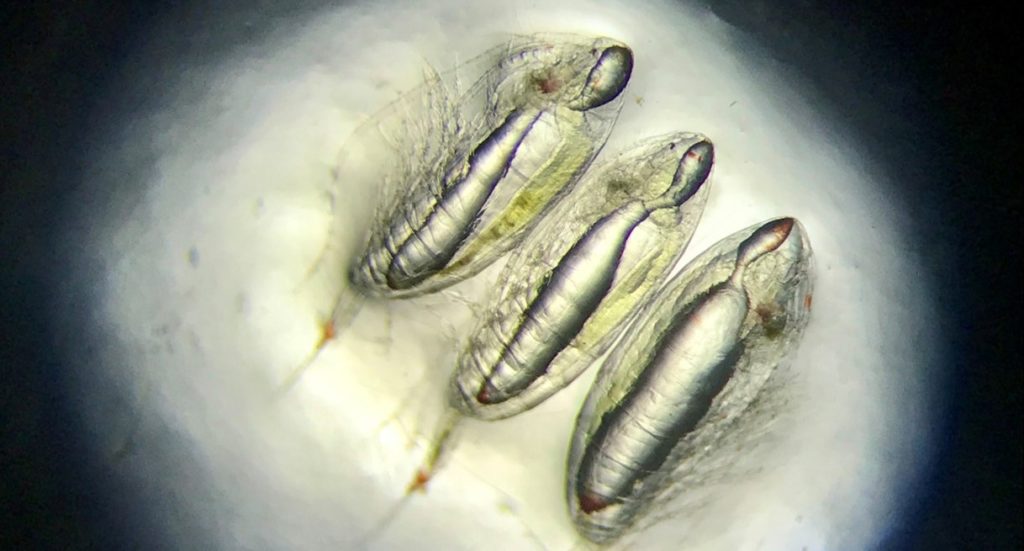New £4 million project to better predict response of Southern Ocean to climate change

The biomass of copepods (pictured) in the Southern Ocean is thought to be double that of Antarctic krill
University of Exeter researchers are involved in a new £4 million research project that will help predict the effects of climate change on the Southern Ocean.
Funded by NERC, and bringing together five UK universities and eight international partner organisations, the IronMan project will explore the role of micronutrients – specifically iron and manganese – in regulating the Southern Ocean, an issue that has been overlooked by current models.
Fieldwork focusing on different Antarctic regions will use state-of-the-art observational, experimental and modelling tools to produce improved models for calculating the effects of climate change.
The project – led by the University of Liverpool – will specifically explore regional variations in iron and manganese supply, how photosynthetic phytoplankton and zooplankton respond to changes in these, and whether integrating manganese and regional ecology alters future climate change projections.
Exeter biological oceanographer Professor Daniel Mayor said: “Plankton are the powerhouse of the ocean, yet our limited understanding of their physiology hinders the development of models that can reliably forecast the effects of climate change.
“The IronMan project will generate new, fundamental understanding of how microscopic marine organisms consume and recycle vital nutrients in the Southern Ocean.”
The Southern Ocean plays an important role in the Earth system.
It drives ocean circulation and climate, where it plays a critical role in carbon sequestration and supplies nutrients to lower latitudes where they support global productivity.
Professor Mayor leads the OceanPlankton research group at the University of Exeter, studying how marine plankton influence the cycling and storage of carbon in the ocean.



